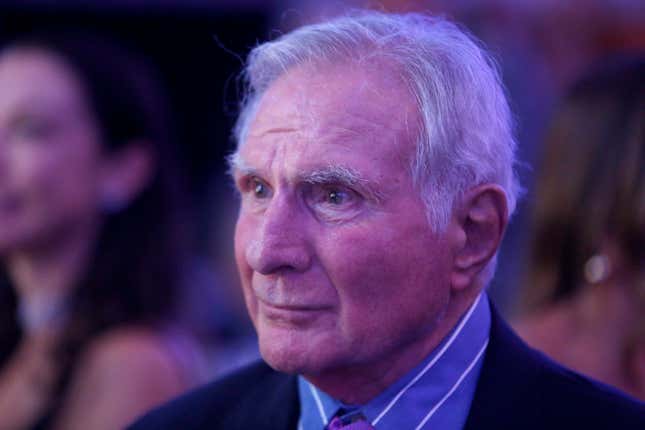
The Many Lives of Nick Buoniconti, the HBO documentary about the Hall of Fame linebacker who died this week at the age of 78, begins with several breathtaking shots of Buoniconti’s stately mansion in the Hamptons, just as Buoniconti makes his way out the front door, onto the porch, and into a wicker chair—all with the aid of a home health worker. The juxtaposition is unmistakable. Here is what football gave Nick Buoniconti, set hard against what it took from him.
Buoniconti embodied every myth the NFL loves to tell about itself: an undersized try-hard who went from being a 13th-round pick in the AFL draft to the fulcrum of one of the league’s legendary teams. He later became a lawyer, an agent, a businessman, a television personality. In a statement in response to Buoniconti’s death, NFL commissioner Roger Goodell praised Buoniconti’s “grit, fearlessness and skill.” It’s possible to imagine Goodell spit-shining the shield somewhere as he heard those words read to him by whichever flack wrote them and slapped his name to it.
The second half of Goodell’s statement acknowledged that Buoniconti made his “biggest impact” through his foundation, the Miami Project to Cure Paralysis, which has raised more than $500 million toward spinal and brain research. Left unsaid was what prompted Buoniconti’s devotion to the cause: His son, Marc, became a quadriplegic after sustaining a spinal injury while playing college football in 1985. And after Buoniconti was diagnosed with dementia in 2016, he used that same “grit, fearlessness and skill” to call bullshit on the NFL for its shabby treatment of retired players and their families.
In a lengthy 2017 Sports Illustrated story that detailed the depths of his cognitive decline, Buoniconti was unsparing with his thoughts toward the concussion settlement. The settlement is supposed to compensate former players for the years the league spent finagling the science of head trauma, but the agreement’s byzantine claims process has proved to be an entirely new headache for many of those seeking relief.
“We’re the players who built the game, but have been forgotten,” Buoniconti said, per SI. “The settlement is a joke; the way it was structured is a joke. They are waiting for us to die. They’re going to play the clock out until everybody dies.”
Two years ago, Buoniconti decided to donate his brain to Boston University’s CTE study. He also didn’t hide his feelings about the NFL’s decision to renege on a commitment to fund research into football’s relationship to CTE and other brain disorders. Outside the Lines reported that the league had backed away from its pledge after learning that a BU researcher would be leading the project.
“The fact that the NFL pulled its funding ... prompted me to come up here and make a statement that the NFL is only in it for the money, and they don’t care about the guys who preceded me,” Buoniconti told the New York Times. “I’m really angry because they turned their backs on us and it’s not a responsible way to do things.”
Buoniconti was better placed than most to recognize the denial of science in the pursuit of profit. But unlike the NFL, he eventually renounced the dark side. In one of Buoniconti’s many lives after football, he worked as a tobacco company executive. He put his “grit, fearlessness and skill” toward defending the industry. The HBO documentary even shows him getting the close-up treatment on 60 Minutes, demanding that Ed Bradley show him the proof that smokeless tobacco causes oral cancer. The film quickly cuts to Buoniconti talking more recently. “It’s hard for me to look at that clip,” he says. Will Goodell and Paul Tagliabue and the owners ever feel the same sense of shame?
“I’m positive that football caused this,” Buoniconti says in the documentary. “But I’m not mad at the game, I’m mad at the owners ... I always loved [football]—still do. But I’m paying the price.”